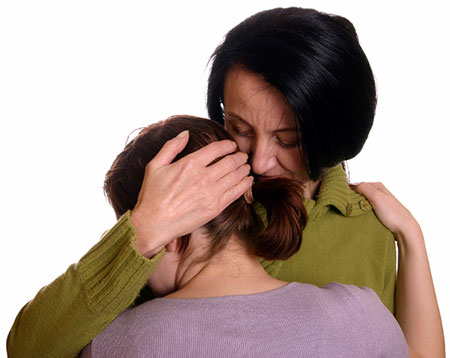What To Say
Finding the right words
Don't stay away because you don't know what to say. The fact that you are there is enough. A warm handshake or an arm around their shoulder can mean so much to someone who feels isolated and lonely.
Be sensitive

Try not to show your own grief. Don't say, 'I know how you must be feeling.' You cannot begin to know how they feel and we all have our own story when it happens to us.
Don't make comparisons or judgments. It might have been worse for someone else, but that will not help your friend.
Some people like to be held, whereas others feel it is an invasion of their privacy. Some people may want to talk, whereas others may want to sit in silence.
Explain you are happy to be with them for as long as they want. Make it clear to them that you are not embarrassed if they cry. Reassure them that this is a perfectly normal reaction.
Be patient and understanding. One of the best ways to help your friend is to allow them to feel what they want to feel. They may feel anger (which may be directed at you, but it is not personal), guilt or fear. Let them talk these feelings through with you — don't try and stop them because you think they are irrational.
After the funeral
Being there for a friend after the funeral is very important. They may want to talk about the person they have lost and this is probably the most important part of the grieving process.
Listen with care and attention. This may be painful for you both. But by going over the final period of their life together, they will start to accept what has happened. Small details of what happened in the last days before the death become terribly important.